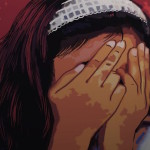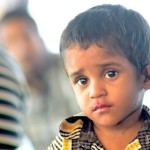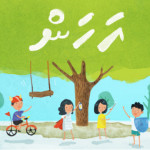The Maldives’ new children’s helpline has been inundated with calls despite only being launched in mid-November, on the 20th anniversary of the Convention on the Rights of the Child.
“We haven’t even started advocacy work and already we’ve received 400 calls in the first month,” said Munzir Ismail, consultant at the Department of Family and Gender. The Child Helpline call centre had been expecting around 270 calls.
Half the calls were requests for information, guidelines and procedures while 37 provided information leading to cases, 15 involving sexual abuse. Four of those calls were made by children themselves, three to report sexual abuse.
“This is the first time [the department] has received any cases from a child,” Munzir said. “Before the helpline we were notified by letters, government agencies and especially the police. But there’s never been a case reported by a child.
One call involved a child ringing up “to say she had been exposed to a lot of sexual abuse in a house and her parents had moved her for her studies. She had told her parents but nothing was done.”
The girl was relocated with a guardian, he said.
“I wasn’t expecting kids to call in the first month, but feedback from them has been that they think this is a good service. There is a lot of harassment in some households, physical and emotional, and for some children it can seem like the end of the road,” he explained.
Interestingly, almost 60 per cent of the calls were made from the atolls. 18 were prank calls while 14 had been silent, Munzir said, suggesting that perhaps children “were being hesitant.”
The social workers tasked with responding to the calls were mindful of making visits that would place the child in a position they might not want to be in at home, he said.
“We try to establish regular contact with the child if counsellors are required.”
The next step for the project was establishing advocacy programs and conducting awareness campaigns and workshops in the atolls on subjects like rights and sexual abuse, Munzir said.
“The Child Helpline is currently operating as a referral and intervention service, and while we have been using departmental counsellors we don’t have the capacity to offer a counselling service,” he added. “We are hoping to work with NGOs to operate the call centre and expand the service, and we’re willing to offer training.”
The toll free Child Helpline number is 1412






So much more work needs to be done when it comes to protecting children. This Child Helpline was long over due, and now we have the opportunity to protect these children. To stop the rampant abuse. 30 percent of girls I've talked to in Male' have been victims of sexual abuse. I'm surprised that 60% of the calls are coming from outside of Male'. Over the last couple years we have started to see the very poor state of our nation in regards to child abuse.
Also, there is no "Ministry of Gender and Family." There is a department within the Health Ministry, but when we took over we got rid of the Permanent Secretary for that particular former Ministry. The government was being consolidated and made more efficient. But we should not have weakened this department. Child protection has to be given a priority in the health ministry and a task force needs to be established to coordinate with the police force. That is the next step - not just "advocacy and awareness."
I implore the public to put pressure on the relevant authorities to take this next step. Just focusing on awareness and counseling will not solve the problem and it gives the Ministry time to waste with half-hearted "next steps." Enough time has been wasted and we need to break the cycle of ineptitude we inherited from the last government.
Yes i agree that so much more work needs to be done towards child rights and protection. We are still not sure who will take up responsibility of protecting our children and often fingers are pointed towards the government. In fact it is the responsibility of communities, families and the government. I am sure the comprehensive international instruments that we are signatories to, does also vouch for this.
We have to recognize that at times there is a sense of ineptitude from the government. This is not only reflective of the previous or current government. I believe it to be due to bureaucracy and several other contributing factors. I am sure that majority of people working with and for children works whole-heartedly and with dedication. So please lets not politicize this.
There is a lot of violence against children within the community. But a minute number is reflective from official statistics. This is often due to lack of awareness within our communities. Lack of awareness on how to report these incidences. Children themselves need to be made aware of measures to prevent themselves from any form of violence. As far as i am aware, the government sector already works closely especially the department of gender and the police. The government needs to bring the community more on board.
This is a developing country and significant improvements are evident within our Child Protection System. More and more services are being introduced, along with legal frameworks and safeguards. Lets all join hands and work together to provide a protective environment for children. Public needs to put pressure on the government as deemed necessary, but also needs to cooperate with each other.
I agree with Salim Waheed.The fact that the Gender Department lost both a cabinet position and a permanent secretary is a shame.It is high time that child abuse gets treated like the national emergency it is.